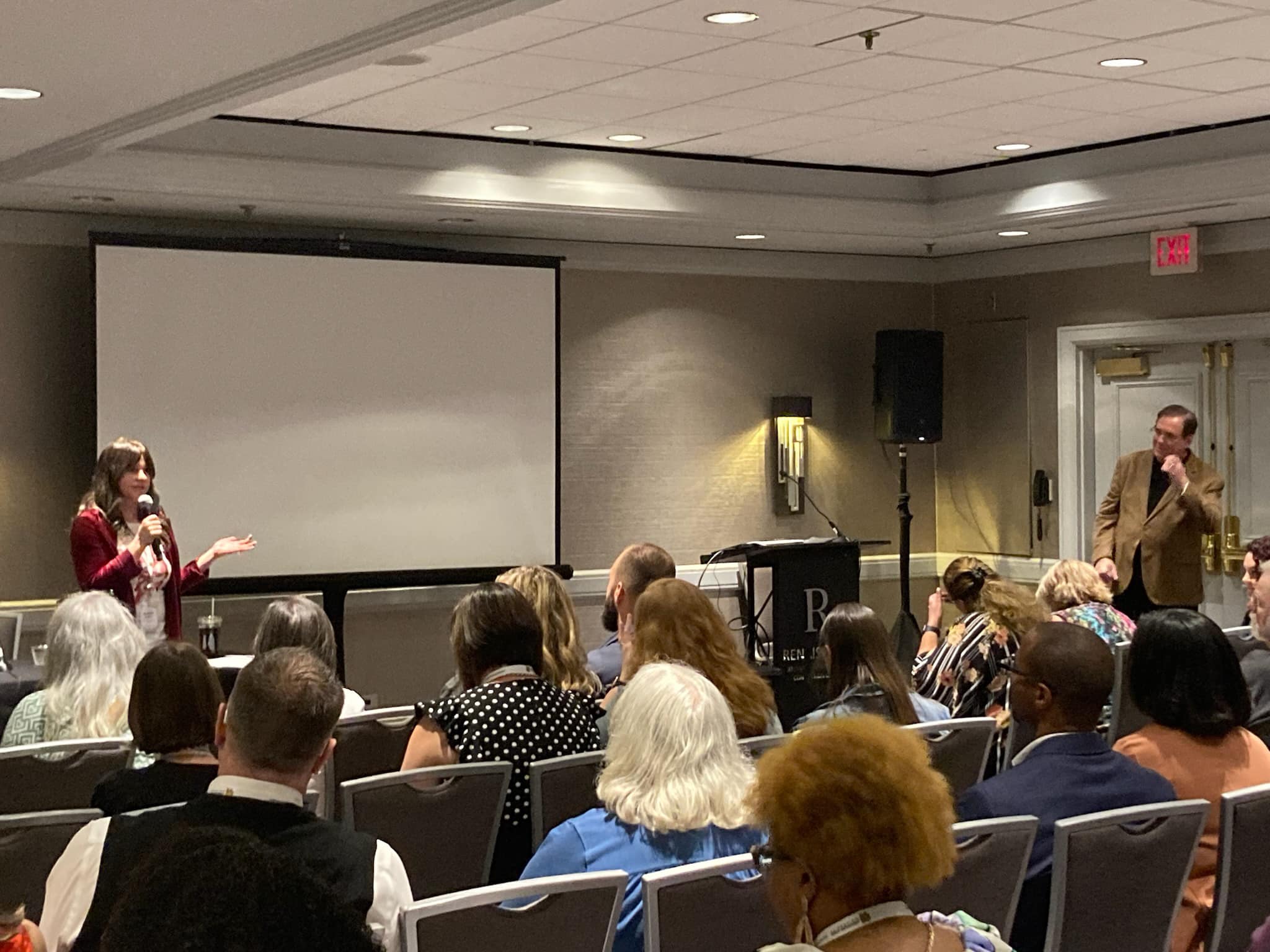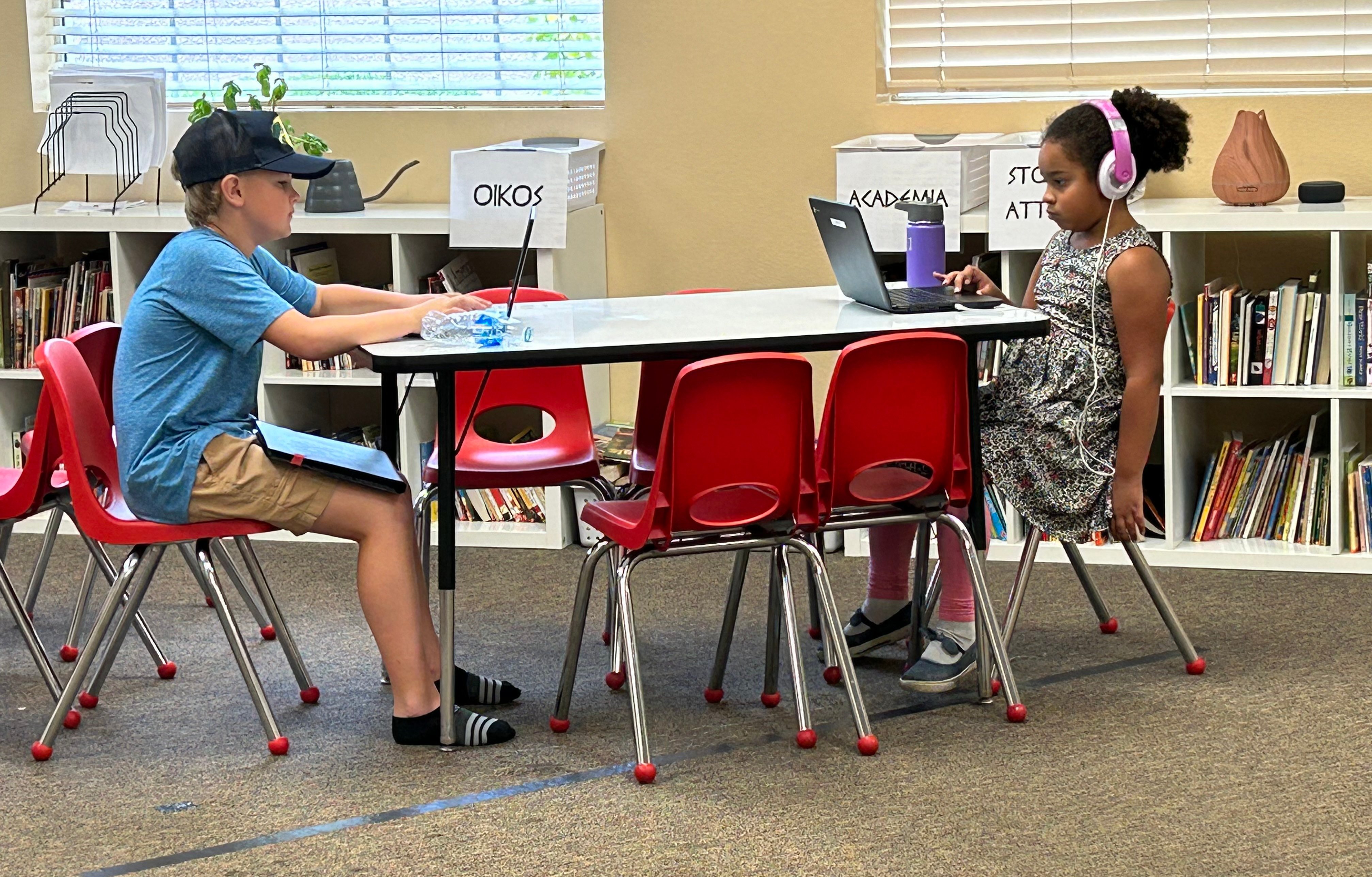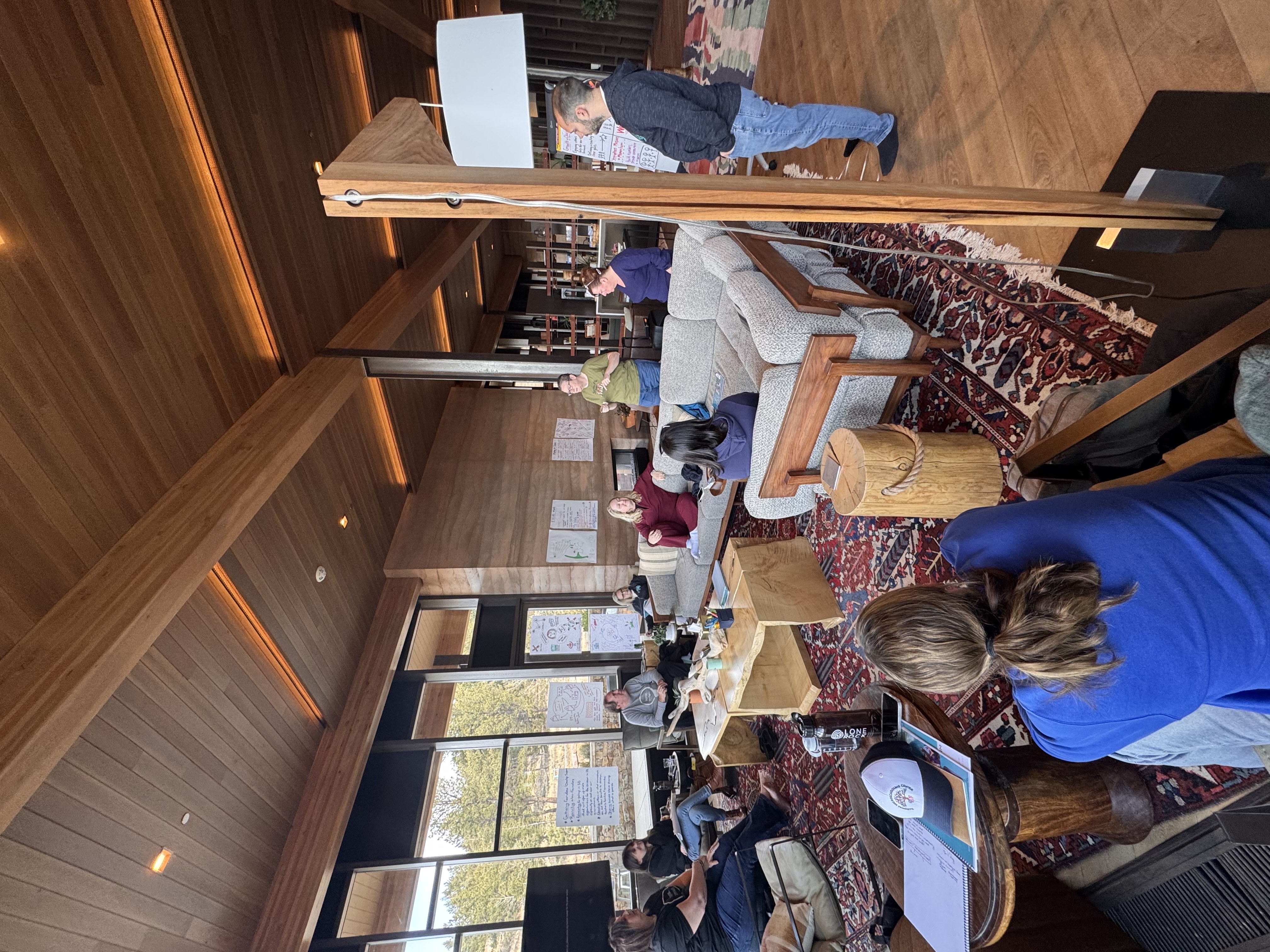“We’re Building a Civil Society from Scratch”
James Lomax, founder of LifeSkills Academy in Las Vegas, explained in a feature article by reporter Jackie Valley in the Christian Science Monitor's...
3 min read
 Ashley Soifer
:
Jul 24, 2024 9:54:47 PM
Ashley Soifer
:
Jul 24, 2024 9:54:47 PM

Here at the National Microschooling Center we are often asked about sustainability, namely ‘Are microschools sustainable?’ What does sustainability in education even mean? At the Center, we have a different take on sustainability in the microschooling movement and in one word, it’s dynamism.
What Does Sustainability Mean in Big Education
Big Education has somehow sold America on the notion that schooling is a big business industry that takes place within the walls of its 80,000 direct instruction factories, each about 50 years old on average, financed by public bond investors who need to be paid back for 20 years. The average cost to build an elementary school is $40M, $60M for middle school, and high schools are roughly 2-4x that amount. Teachers in these conventional district settings become members in state pension plans, now largely insolvent, that often take 10 years on the job to begin to cover costs.
This massive sector absorbs roughly 4.5% of US GDP, in a time where state budget planners are facing unprecedented cliffs and falloffs, it is one of the most unproductive sectors in economic terms our country has ever seen.
Microschooling could hardly come at a better time.
What the Microschooling Sector Is and What It Isn’t
The microschooling movement is dynamic. The movement is full of innovative, energized and creative microschool founders who are constantly active in the progress of the movement. We can survive individual microschool closures because of the way microschool founders help each other open new microschools. Every microschool founder that I talked to that closed their doors at the end of the 2023-2024 school year had helped multiple other new microschool leaders who are preparing to launch or have launched their own microschools.
This movement is flexible and adaptable. As new challenges come our way, we adapt to meet them, just like we adapt to meet new opportunities. The movement is not slow-moving or stagnant. The movement doesn’t need to wait on the approval of others or fear going against the status quo. This is a movement of fast-moving action takers who are refusing to wait for anyone.
We are also not a competitive movement. Microschool founders are eager to share their knowledge with one another, knowing that the more microschools there are, the better it is for everyone. Microschool founders thrive in diverse ecosystems, alongside microschooling families, and founders are working hard to create these ecosystems, providing resources, support and knowledge to potential founders.
When microschool founders do decide it is time to close, they do so thoughtfully, intentionally and with the families in focus. Microschools founders are adamant that their families know their options and are diligent in connecting their families with other microschooling options available to them.
Avoid the Pressures Being Placed on Microschools
As we look at the budgets given to the conventional district-operated public school to open, how can we expect microschools to compare to these institutions? And, more importantly, why when we are so excited about how microschools are different, would we want to? To microschool founders: You don’t have to be the answer for everyone, for all things, forever.
We are used to looking at school closures as a failure. Many people automatically apply this same sentiment to microschools. We have often heard things like, “It’s a disappointment to families when microschools close,” “We need guardrails for microschools,” and “It’s a failure when a microschool closes.”
When a microschool founder does decide they need to close their doors, they often call the Center to discuss their options, so we are fairly familiar with what’s on their mind (be on the lookout for blog #2 in this session on why microschools close). Words like failure are not the words that microschool founders need weighing on them when they decide to close. This attitude is not what this movement is about. Anyone, absolutely anyone, that has spent any time with a microschool founder who has had to make the difficult decision to close their doors would not issue such a blanket statement.
One of the microschools that one of my children was attending for the 2023-2024 school year closed at the end of the year. Let me be clear, I am not disappointed in them. I do not see this incredible, fearless leader as a failure. The microschool founder sat with me and discussed their decision, what led up to it and what the next steps are, both for families and for the leader. I am proud of this leader. I am grateful for the opportunity that was given to my child for the year she attended. I am grateful for the growth, learning and experience that she had. I will not stand for anyone making this founder feel like a failure because her doors closed. The Center will not stand for anyone making any founder that has closed their doors feel like a failure.
While there are various reasons that microschools close (be on the lookout for the second blog in this series), for those founders that decide on their own that it’s time for them to close their doors, let’s celebrate their success of opening a microschool. Let’s celebrate their success regardless of how many years they were open. Let’s praise them for the opportunities and experiences they provided for children. Let’s praise them for the education about microschooling that they provided to parents, families and their community. And let’s honor them for their dedication to this movement and for helping others to launch so the movement continues to thrive.
Coming soon, Part 2 in this series, Why Microschools Close, Part 3 How to Stay Open if You Want To and Part 4 Closing Responsibly

Don and Ashley Soifer presenting "Dynamism is the New Sustainability for Microschools" at the 2024 National Hybrid Schools Conference

James Lomax, founder of LifeSkills Academy in Las Vegas, explained in a feature article by reporter Jackie Valley in the Christian Science Monitor's...

On November 15 - 17, the National Microschooling Center held our annual team retreat. We were fortunate to stay at Lone Rock Retreat in Colorado,...
.jpg)
How do microschools demonstrate their impact? In all sorts of different ways that matter to their most important stakeholders.